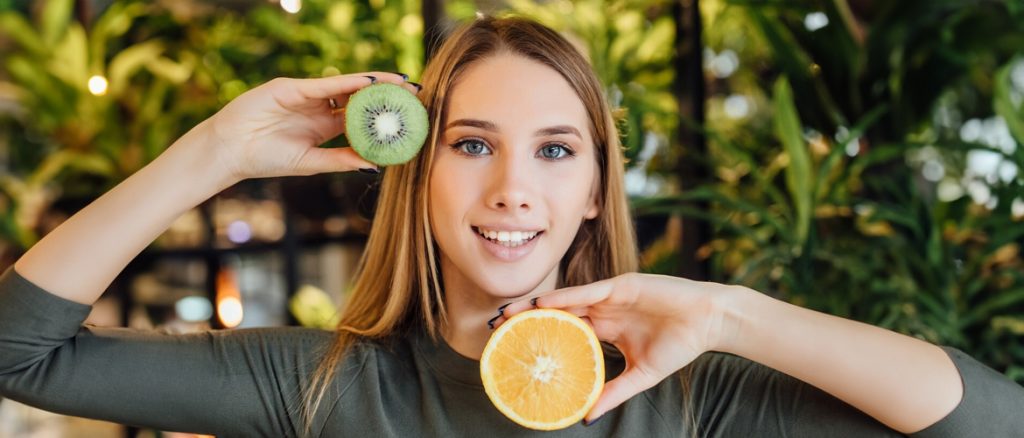What is Beautiful Skin?
We all have our ideas of what “beautiful skin” means. For some, it’s all about that radiant glow, while for others, it might be a smooth, even complexion. Whatever your definition is, beautiful skin usually shows a sign of good health and self-care. It’s not just about how it looks, but how it feels also matters. When you take care of yourself and nourish your skin, it does shine through. So, let’s talk about what makes your skin feel its best, and how we can support that beautiful glow you’re aiming for.Why Skin Health is Important?
Your skin is your body’s largest organ, and it does a lot more than just act as a protective barrier! It reflects your overall health. When your skin is glowing, it not only looks amazing but can also give your confidence a nice boost. It’s like a little sign that everything is functioning well inside your body. Keeping your skin healthy can help you avoid issues like premature aging, breakouts, and dryness, which we all want. So, let’s explore some enjoyable and simple ways to keep your skin looking fantastic.Factors Affecting Skin Health
1. Diet
First off, what you eat is super important. A balanced diet filled with fruits, veggies, and healthy fats provides the nutrients your skin needs to stay vibrant. Those antioxidants and vitamins really help protect your skin and keep that glow.2. Hydration
Next up is hydration. Drinking enough water is crucial for keeping your skin plump and fresh. When you’re well-hydrated, your skin looks healthier and can avoid that dry, dull look.3. Sun Exposure
Protecting your skin from UV rays is a must. Regularly using sunscreen helps prevent sunburn, premature aging, and even skin cancer. It’s like giving your skin a shield.4. Sleep
Quality sleep is a must. When you get enough rest, your body has the chance to repair and refresh your skin. It helps with that fresh-faced look and can reduce dark circles too.5. Skincare Routine
Having a good skincare routine is essential. Using the right products for your skin type helps address specific issues and keeps your skin healthy. Consistency is key to promoting that lovely, glowing complexion.Best Food For Skin
Choosing the right foods can greatly enhance your complexion, giving you that sought-after healthy glow. Let’s dive into the best foods for achieving vibrant, beautiful skin.1. Spinach
Spinach is packed with vitamins A, C, and E, which are fantastic for keeping your skin healthy and vibrant. Toss it in a salad or blend it into a smoothie as it’s a delicious way to nourish your skin.2. Tomatoes
Tomatoes are rich in lycopene, which helps protect your skin from sun damage. Use them in salads, and sauces, or enjoy them fresh.3. Citrus Fruits
Oranges, lemons, and grapefruits are bursting with vitamin C, essential for collagen production. A glass of fresh orange juice in the morning can give your skin a boost while refreshing your day.4. Dark Chocolate
Yes, dark chocolate is a treat that’s good for your skin. It’s loaded with antioxidants that can improve hydration and texture. Just a small piece can satisfy your cravings and support your skin at the same time.5. Greek Yogurt
Greek yogurt is full of probiotics that promote gut health, which can positively impact your skin. Enjoy it with honey and fruit for a tasty snack that’s also skin-friendly.Diet Tips Based on Skin Type
| Skin Type | Dietary Focus | Recommended Additions | Foods to Limit |
| Oily Skin | Fruits and Vegetables: leafy greens, berries, citrus | Lean Proteins: chicken, turkey, fish | Sugary and Processed Foods |
| Dry Skin | Healthy Fats: avocados, nuts, olive oil | Omega-3 Fatty Acids: salmon, flaxseeds | Caffeine and Alcohol |
| Combination Skin | Balanced Diet: mix of fruits, veggies, whole grains | Probiotics: yogurt, fermented foods | High-Sugar Foods |
| Sensitive Skin | Anti-Inflammatory Foods: blueberries, leafy greens, nuts | Hydrating Foods: cucumbers, watermelon | Spicy and Processed Foods |
| Acne-Prone Skin | Low Glycemic Index Foods: whole grains, legumes, fruits | Zinc-rich foods: nuts, seeds, whole grains | Dairy Products |
1. For Oily Skin
- Tip 1: Increase Water Intake
- Tip 2: Eat More Leafy Greens
- Tip 3: Limit Processed Sugars
- Tip 4: Include Zinc-Rich Foods
2. For Dry Skin
- Tip 1: Add Healthy Fats
- Tip 2: Stay Hydrated
- Tip 3: Include Vitamin E-Rich Foods
- Tip 4: Reduce Caffeine and Alcohol
3. For Combination Skin
- Tip 1: Balance Omega Fats
- Tip 2: Avoid Dairy Products
- Tip 3: Consume Antioxidants
- Tip 4: Moderate Carb Intake
4. For Sensitive Skin
- Tip 1: Incorporate Anti-Inflammatory Foods
- Tip 2: Avoid Spicy Foods
- Tip 3: Include Probiotics
- Tip 4: Opt for Low-Allergen Foods
5. For Acne-Prone Skin
- Tip 1: Increase Fiber Intake
- Tip 2: Cut Out Dairy
- Tip 3: Reduce Refined Carbs
- Tip 4: Add Vitamin A-Rich Foods
6. For Normal Skin
- Tip 1: Maintain a Balanced Diet
- Tip 2: Focus on Hydration
- Tip 3: Eat Foods Rich in Antioxidants
- Tip 4: Include Vitamin C-rich Foods

